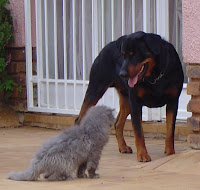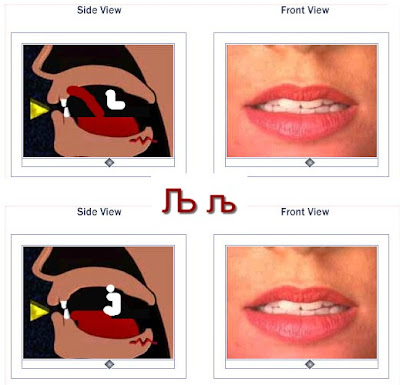Another great song which all the devojčice i dečaci sing is "Ivin voz" by Dragan Laković . It's also perfect to introduce a complex lexical system of the Serbian verb (which mirrors English phrasal verbs as well as perfectve /imperfective aspects ) :
The Cyrillic script version:
Ћиху, Ћиху, ћиху-ху...
Из куће је излетео на улицу Ива
сав задихан захуктао к'о локомотива.
Видели га другови, па за њим и они
потрчали, захуктали к'о прави вагони.
Ћиху, Ћиху, ћиху-ху...
Сад улицом тако јури та чудна колона
то воз Ивин путује са седам вагона.
The Latin script version:
Ćihu, Ćihu, ćihu-hu...
Iz kuće je izleteo na ulicu Iva
sav zadihan zahuktao k'o lokomotiva.
Videli ga drugovi, pa za njim i oni
potrčali, zahuktali k'o pravi vagoni.
Ćihu, Ćihu, ćihu-hu...
Sad ulicom tako juri ta čudna kolona
to voz Ivin putuje sa sedam vagona.
Interesting verb lexicology:
The Cyrillic script version:
Ћиху, Ћиху, ћиху-ху...
Из куће је излетео на улицу Ива
сав задихан захуктао к'о локомотива.
Видели га другови, па за њим и они
потрчали, захуктали к'о прави вагони.
Ћиху, Ћиху, ћиху-ху...
Сад улицом тако јури та чудна колона
то воз Ивин путује са седам вагона.
The Latin script version:
Ćihu, Ćihu, ćihu-hu...
Iz kuće je izleteo na ulicu Iva
sav zadihan zahuktao k'o lokomotiva.
Videli ga drugovi, pa za njim i oni
potrčali, zahuktali k'o pravi vagoni.
Ćihu, Ćihu, ćihu-hu...
Sad ulicom tako juri ta čudna kolona
to voz Ivin putuje sa sedam vagona.
Interesting verb lexicology:
- leteti = to fly, IZleteti = to fly out of
- huktati = to make a sound like a to train (figuratively: to complain) , ZAhuktati se = to gather speed (for a train, or when doing something)
- trčati = to run, POtrčati = to start running
An exercise covering this topic can be found on this SerbianLesson.com page.

.png)















